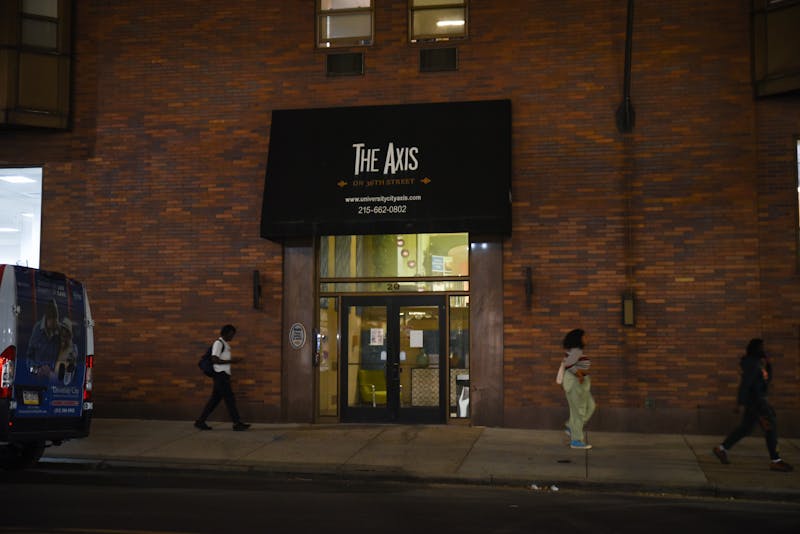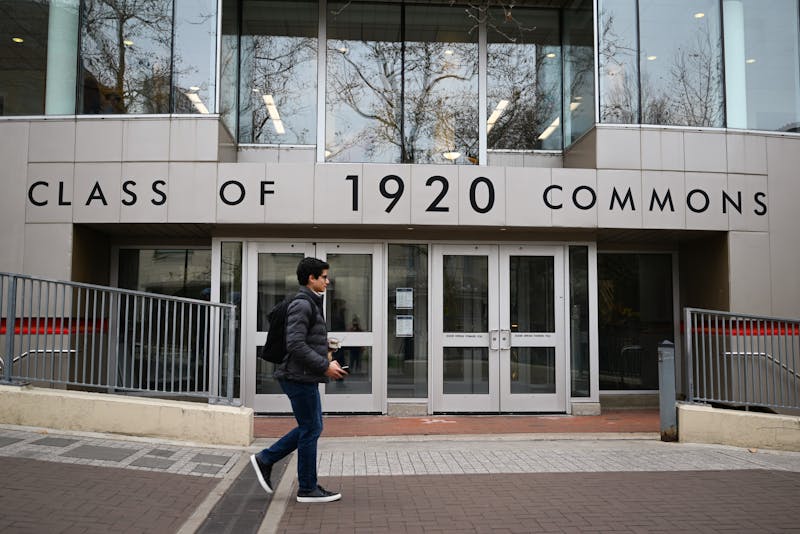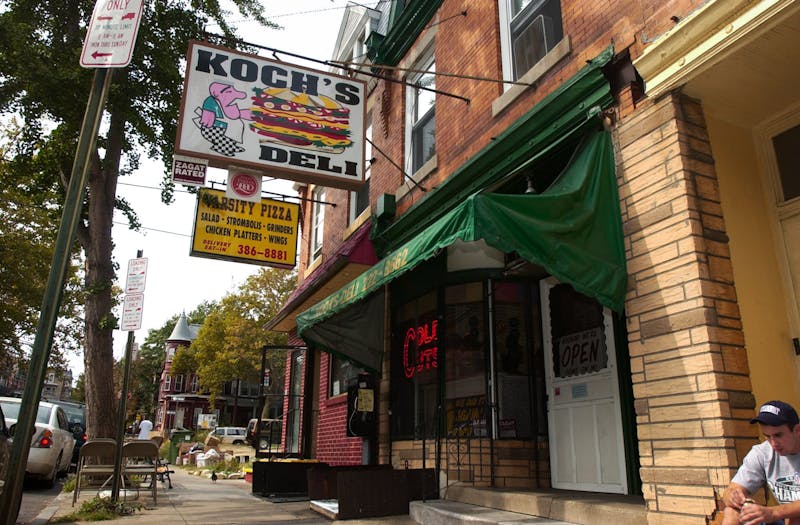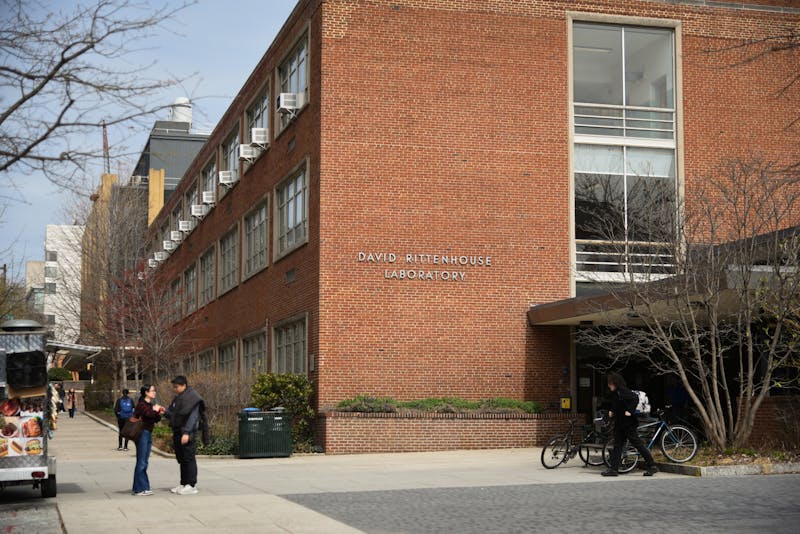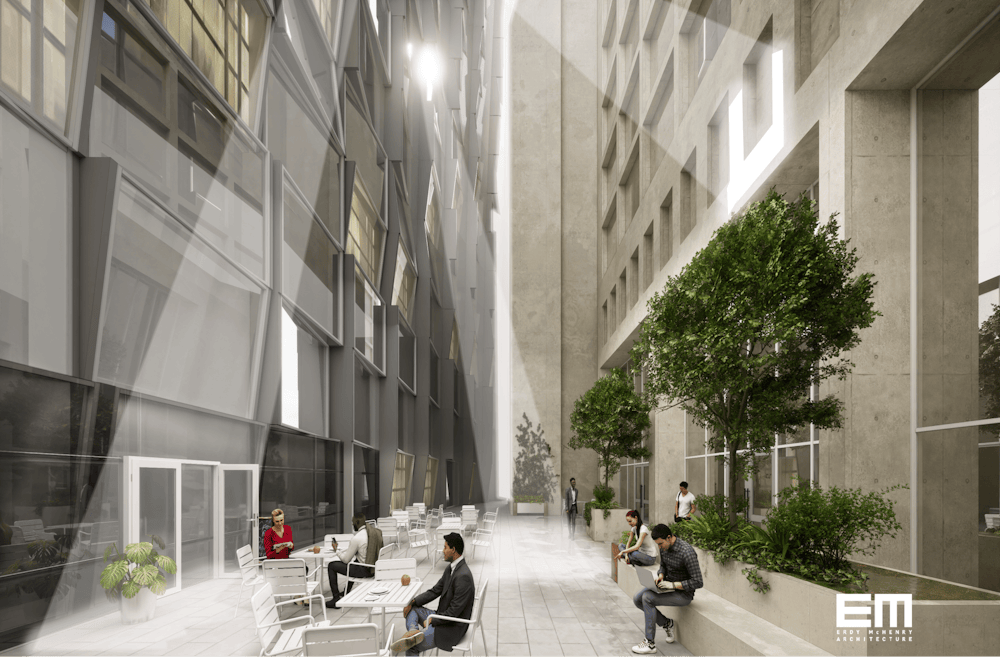
The Creating Shared Communities real estate investment group will build an addiction rehabilitation center at 3700 Ludlow Street, blocks away from Penn's campus (Photo courtesy of Creating Shared Communities).
Real estate investment group Creating Shared Communities will build a 517,000-square-foot addiction rehabilitation center at 3700 Ludlow St., blocks away from Penn’s campus.
When completed, the 40-story building is set to have both inpatient and outpatient services and will be the largest addiction rehabilitation center in the Northeast. General manager of CSC Sal Smeke called the facility the “Mayo Clinic of drug abuse in the Northeast.”
“It will be very complicated to be able to move all those people into different drug abuse centers,” Smeke said. “So what we’re proposing is to have one major hub.”
The rehabilitation facility will be constructed behind the Mason on Chestnut, which recently received a Cease Operations Order from the City of Philadelphia on June 11, resulting in residents having to evacuate for eight days due to multiple city code violations. CSC acquired the Mason in 2020 and the building has faced management changes, failed inspections, and resident dissatisfaction since then.
The building will have an “ice-cream cone” shape, with the building becoming wider as the stories increase. This design allows there to be natural light in the rooms along the sides of the facility, even as the facility is in between other buildings, according to Smeke. The lower levels will be curved so that light can be reflected onto the courtyard in between the buildings.
Smeke said that future students who are concerned about having drug and alcohol abusers nearby should focus on how the rehabilitation center will improve Philadelphia in the long run.
“Yes, it might be a little scary sometimes on the street to see these guys roaming around,” Smeke said. “Even though it's going to look a little awkward to have a rehab drug facility right next to a dormitory or your classroom, this is something that in the long term will fix bigger problems than [the time that] you've been there.”
Smeke added that he wants parents of prospective students to consider the larger impact that this facility can have, rather than thinking pessimistically.
He said that instead of “having a very narrow view and saying ‘[H]ey, how can my child be affected next semester?’,” parents need to “look at the big picture and how [CSC] is going to be able to fix the entire city with one single project.”
“We know for a fact that there’s a very, very big drug abuse problem in the city of Philadelphia, which is affecting a lot of the students that are thinking twice about [attending] Penn, Drexel, or Temple,” Smeke said. “I would like the students of UPenn to be supportive of this project … we’re speaking about how to fix the city of Philadelphia as a whole.”
After CSC announced the construction of the drug and alcohol rehabilitation center, Philadelphia Mayor Cherelle Parker announced that she would be allocating $100 million for “triage and wellness facilities” as part of her 2025 fiscal year budget, in line with her commitment to public safety and community improvement.
It is unclear whether CSC will receive part of that funding.
CSC also initially garnered the support of City Councilmember Jamie Gauthier, who oversees the city’s third district, which includes University City.
Gauthier wrote in a letter to Smeke that she is eager to learn more about how the drug rehabilitation center can “support the community inside and outside [its] walls.”
“A focus for my vision for equitable communities in my district is ensuring that high-amenity and high-opportunity neighborhoods like this one are not just reserved for the chosen few,” Gauthier said.
Following the temporary shutdown of the Mason, Gauthier wrote to the DP that “CSC's response to the situation at the Mason speaks to its ability to be a responsible property manager and good neighbor. How CSC conducts themselves now will help me determine whether they can be trusted to own a rehabilitation facility.”
CSC is one of the largest real estate development companies in the Northeast, with over 10,000 properties in the United States and Mexico. Construction of the rehabilitation facility will begin at the end of this year, and it set to finish 24 months from then.
The Daily Pennsylvanian is an independent, student-run newspaper. Please consider making a donation to support the coverage that shapes the University. Your generosity ensures a future of strong journalism at Penn.
Donate







